Sick Pay, Holidays And Pensions – End Outsourcing – Nine years ago on Friday 28th June 2013 I photographed a protest by low-paid workers at the University of London who with their supporters ran into the Senate House and protested noisily inside the building for sick pay, holidays and pensions for all workers at the University.
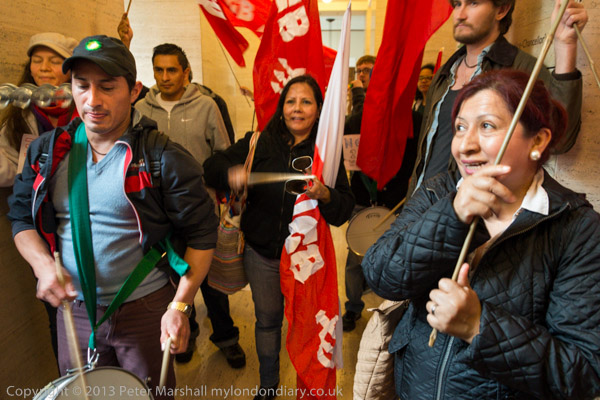
I’ve spent some time over the past few days thinking about strikes and industrial actions, partly because of the rail strikes. My local station is one of the few that still has a train service, but out of solidarity with the workers I won’t be using it on strike days, and on the days in between it is still likely to be unreliable.
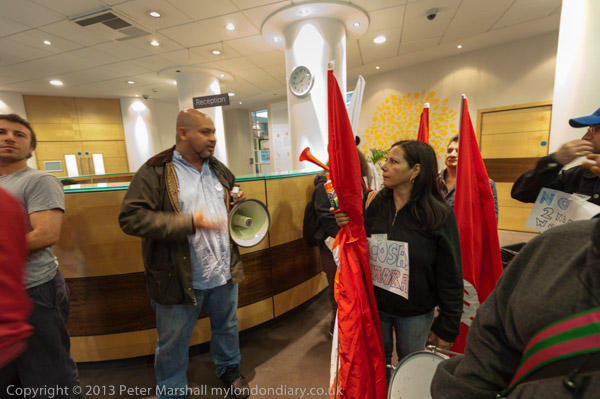
Of course I support the strikers, many of them low paid workers and all of whom have seen the value of their wages cut over the last few years. And these have been years when for all the problems that politicians and media state many of the wealthy have got considerably wealthier – and some made huge fortunes over Brexit and profited greatly (and not always legally) over Covid. We are living in an increasingly unfair society, and with a government which despite claims about levelling up is doing its damnedest to make the rich richer while making the poor poorer.
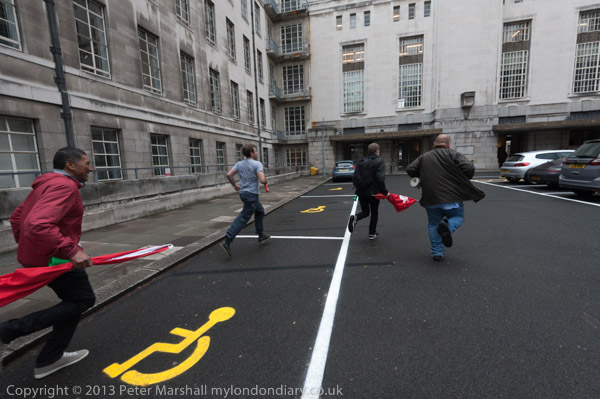
The government and train operating companies make much of the need to modernise the railways and I can only agree with them. We desperately need to get back to a sensible structure for running railways, to reverse the breakup of the system into small pieces, each with its highly paid management, caused by the doctrinaire privatisation of the 1990s. And yes, there are other changes which could greatly improve the system, but what the companies mean by modernisation is largely slashing the additional rates for overtime, weekend and night work. It’s ‘we’ll give you more pay if we can cut your wages at the same time’.
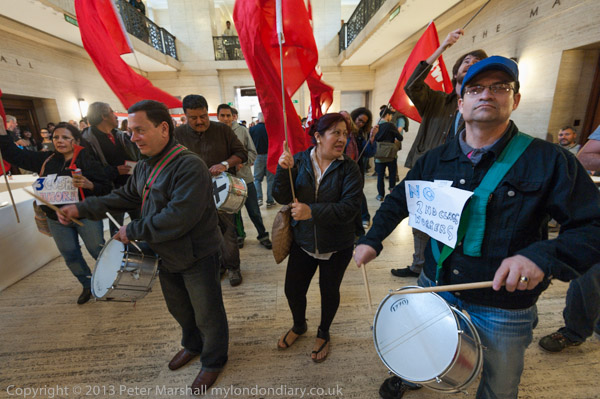
June 28th is said to be the date on which new restrictions on the right to protest pushed through parliament in the last session come into effect. I think the protest by the IWGB on behalf of low paid workers employed by contract companies at London University on Friday 28th January 2013 would clearly have been illegal in several ways had this law been in place then. And it would be precisely those aspects that made this and most other protests over low pay effective that could have resulted in arrests.
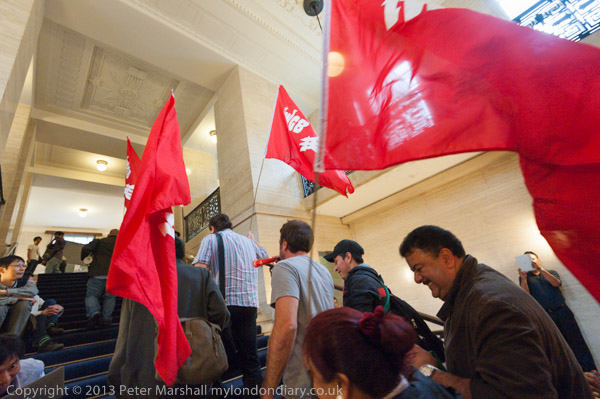
I don’t know how (or even if) the police will enforce the new laws. Although I think they will have little appetite to do so, there will be considerably political pressure on them. And while the large unions will worry about the huge impact legal measures would have on their funds and largely play safe, perhaps the small grass-roots unions who have been so much more effective for low paid workers will feel they have less to lose.
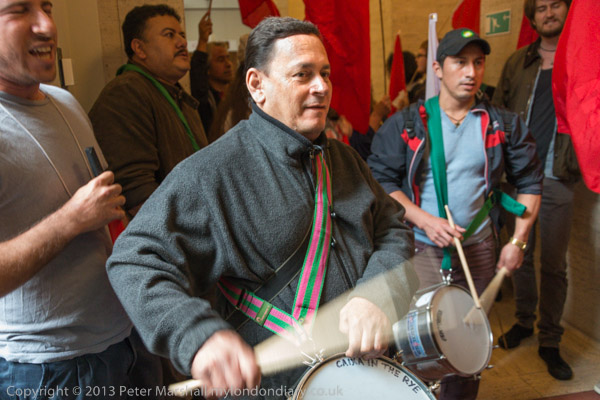
Back in 2013, the low paid workers who keep London University running were taking part in a ‘Summer of Action’, supported by the grass roots IWGB union (Independent Workers of Great Britain) and the students of the ULU (University of London Union.)
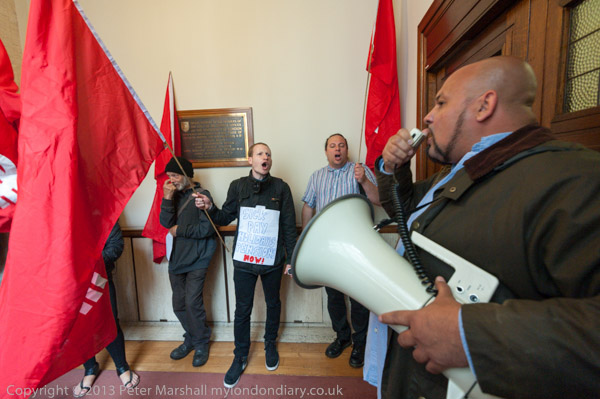
Many of the the cleaners, security guards and catering staff who work in the same buildings as other service staff employed by the university have brutally inferior conditions of service as they employed on behalf of the university by contracting companies who give them none of the kind or working conditions that any considerate employer would provide.
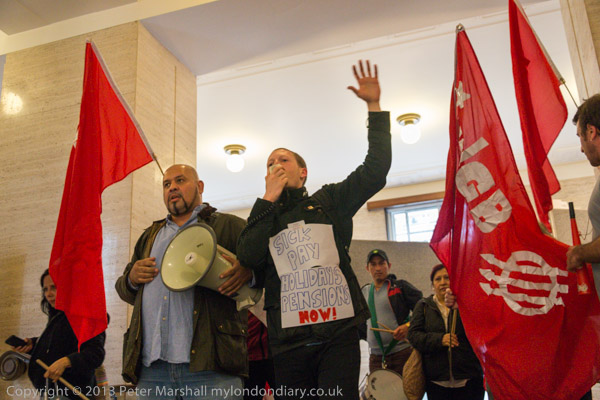
Often they are not provided with proper safety equipment and expected to work in unsafe ways to get the job done, and may have to put up with harsh and unreasonable demands over workload, derogatory treatment and even racism from the managers employed by contract companies.
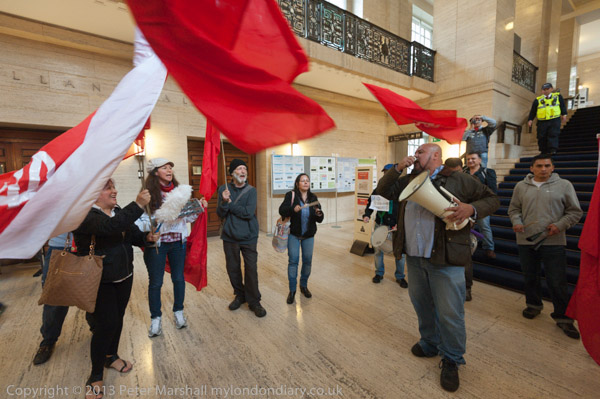
But this ‘3 Cosas’ protest was largely about three things, sick pay, holidays and pensions, on which these outsourced staff often have to fight even to get the rock-bottom statutory minimum provisions. Statutory sick pay is so low that few workers can afford to take time off when they are sick. Even at the height of Covid, many who were unwell had to drag themselves into work, putting their own health and that of others at risk to pay their rent and feed their families.
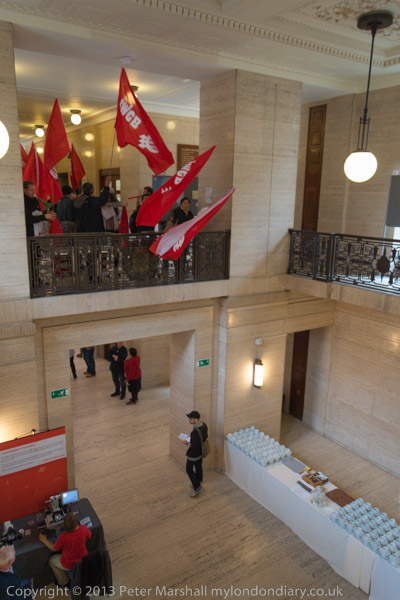
It took many protests such as this to persuade the University and other bodies to end the unfair outsourcing – even when studies showed there were considerable advantages in having a properly employed workforce and little if any financial loss. At SOAS, where the protesters met before the protest the Justice for Workers Campaign led by SOAS Unison branch began in 2006 and was only finally successful in 2018.
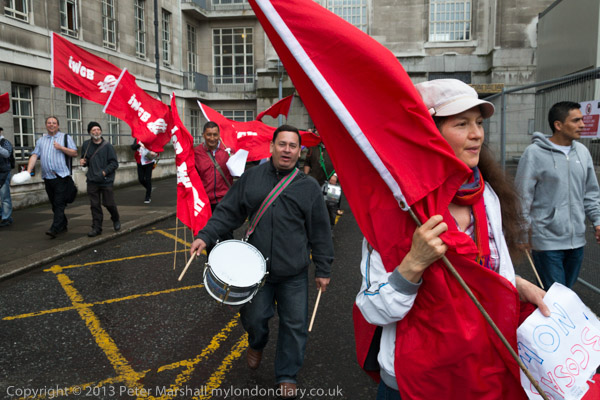
The IWGB is still campaigning against outsourcing at University College London (UCL) and London School of Hygiene and Tropical Medicine (LSHTM) as well as other campaigns. A few days ago I photographed them outside the London offices of the world’s largest healthcare multinational Health Corporation of America (HCA) Healthcare, who run the private London Bridge Hospital, and they also support other groups of low-paid workers, including foster carers, delivery drivers, minicab drivers and cycling instructors.
More about the 3 Cosas protest at Cleaners Surprise Senate House Invasion.